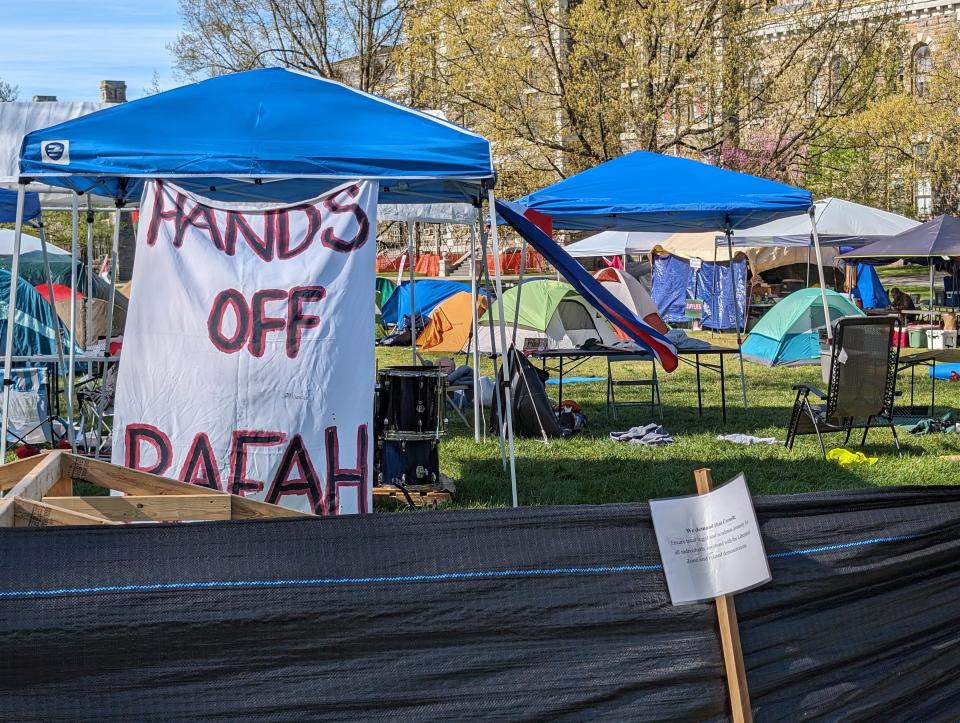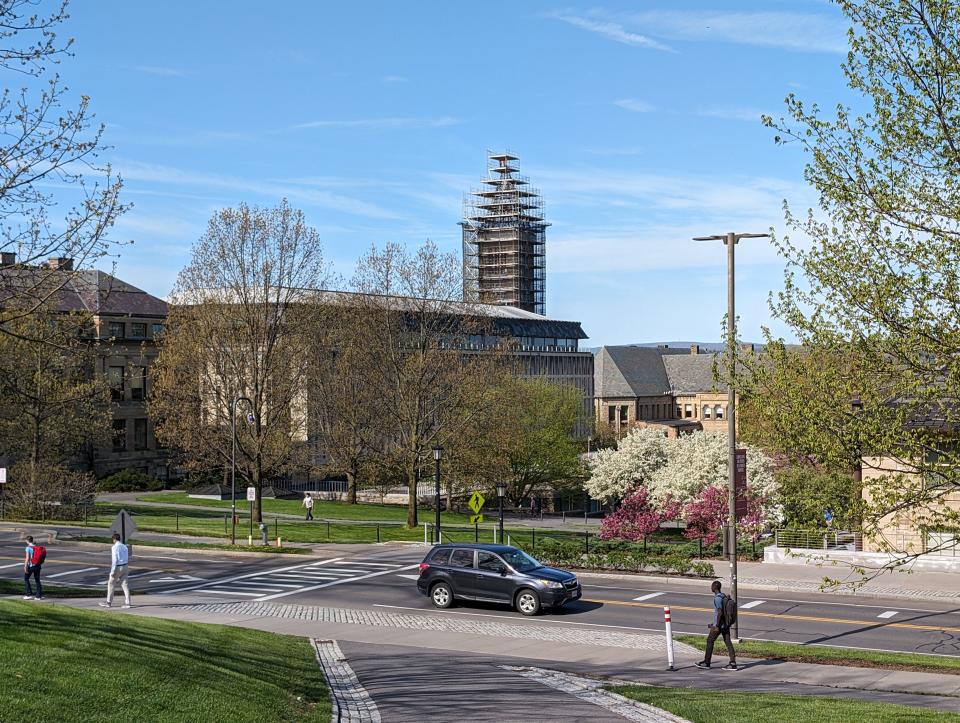After 18 days, Cornell’s student encampment for Palestine is no longer
This article was edited to include comments from Cornell President Martha Pollack.
Anyone walking through the Cornell University Arts Quad may have noticed the tents and signs flaunting a “liberated zone” in protest of Cornell’s involvement in the Israel-Hamas conflict over the past few weeks.
The Student-led Coalition for Mutual Liberation held a vigil Monday to honor the lives of Palestinians lost in Rafah before organizers began to strip down the tents and ramshackle barrier walls to the encampment, constructed on the university’s Arts Quad by protesters from the group April 25.
The group released background information on its recent protests in a post on its Instagram page, which also notes that negotiations with the college will continue, urging those involved to “stay tuned for more updates.”
University president Martha Pollack sent a statement to the Cornell Community Tuesday afternoon, acknowledging and expressing gratitude that the protests on Cornell's campus did not escalate into violence, and that "the participants here remained peaceful and nonviolent throughout, and for the most part they tried to minimize the disruption caused."
The protests followed a referendum where undergraduate students voted overwhelmingly in favor of the university divesting from 10 weapons manufacturers, including Boeing, ThyssenKrupp, Elbit Systems, RTX and Lockheed Martin.
“Today, the Liberated Zone will close with a vigil honoring the lives lost in Rafah as a part of Israel’s ongoing genocide of Palestinians in Gaza,” the group stated Monday. “Even though the Liberated Zone is ending physically, it will live on through continued negotiations, teach-ins, and other related, peaceful events.”

Throughout its protests and negotiations at Cornell, CML has supported eight student demands for the university, namely, “divestment from any company complicit in genocide, apartheid, or systematic cruelty against children perpetrated against Palestinians in Gaza and the West Bank, in accordance with Cornell's 2016 Standard to Guide Divestment Consideration”
What happened within the Liberated Zone?
The Liberated Zone hosted 50 teach-ins by several professors, despite the threat of human resources reports.
According to CML, the zone served to establish a safe space for multi-faith prayers and other practices, alongside a mutual aid network for surplus food and supplies with the local community. The encampment also included a Peoples’ Library, Art Station, and Wellness Zone.
The group said in a Monday statement that, though its negotiations team was pressed with temporary suspensions lodged at three of the eight student negotiators, the pace of its negotiations with the college have recently increased, culminating in a meeting with University President Martha Pollack last Friday.

"The participants in the encampment shared that members of our Jewish community who have criticized Israel have been targeted with the slur “kapo,” which not only is deeply offensive, but also trivializes the memory of the Holocaust," Pollack said Tuesday. "Other students involved in the encampment shared experiences of being called “terrorists” over the past few months in an expression of anti-Arab discrimination and hatred. No matter one’s political beliefs, using such rhetoric, which questions the basis of someone’s religious, cultural, ancestral, or any form of identity is unacceptable, and I implore everyone in our community to think carefully about their words."
Pollack announced her retirement last week after serving for over seven years as the 14th president of Ithaca’s Ivy League, saying that “… continued delay is not in the university’s best interests, both because of the need to have sufficient time for a smooth transition before the start of the coming academic year, and because I do not want my announcement to interfere with the celebration of our newest graduates at commencement in just a few weeks.”
Pollack said that she hopes the university does not lose sight of what Cornell is aside from the “current turmoil taking place at universities across the country right now.”
This article originally appeared on Ithaca Journal: CML holds vigil for Rafah, deconstructs Arts Quad encampment

